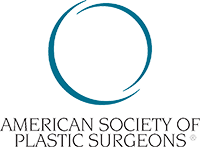| Intro | Candidates | Recovery | Consultation | Preparation | Procedure |
What are the risks of breast reduction surgery?
The decision to have breast reduction surgery is extremely personal. You will have to decide if the benefits will achieve your goals and if the risks of breast reduction surgery and potential complications are acceptable.
Your plastic surgeon and/or plastic surgery staff will explain in detail the risks associated with surgery. You will be asked to sign consent forms to ensure that you fully understand the procedure you will undergo and any risks or potential complications.
Possible breast reduction surgery risks include:
- Unfavorable scarring
- Infection
- Changes in nipple or breast sensation, which may be temporary or permanent
- Anesthesia risks
- Bleeding (hematoma)
- Blood clots
- Poor wound healing
- Breast contour and shape irregularities
- Skin discoloration, permanent pigmentation changes, swelling and bruising
- Damage to deeper structures—such as nerves, blood vessels, muscles and lungs—can occur and may be temporary or permanent
- Breast asymmetry
- Fluid accumulation
- Excessive firmness of the breast
- Potential inability to breastfeed
- Potential loss of skin/tissue of breast where incisions meet each other
- Potential, partial or total loss of nipple and areola
- Deep vein thrombosis, cardiac and pulmonary complications
- Pain, which may persist
- Allergies to tape, suture materials and glues, blood products, topical preparations or injectable agents
- Fatty tissue deep in the skin could die (fat necrosis)
- Possibility of revisional surgery
You should know that:
- Breast reduction surgery can interfere with certain diagnostic procedures
- Breast and nipple piercing can cause an infection
- Your ability to breastfeed following reduction mammaplasty may be limited; talk to your doctor if you are planning to nurse a baby
- The breast reduction procedure can be performed at any age, but is best done when your breasts are fully developed
- Changes in the breasts during pregnancy can alter the outcomes of previous breast reduction surgery, as can significant weight fluctuations
The practice of medicine and surgery is not an exact science. Although good results are expected, there is no guarantee. In some situations, it may not be possible to achieve optimal results with a single breast reduction procedure and another surgery may be necessary.
Where will my surgery be performed?
Breast reduction procedures may be performed in your plastic surgeon’s accredited office-based surgical facility, an ambulatory surgical facility or a hospital. Your plastic surgeon and the assisting staff will fully attend to your comfort and safety.
When you go home
If you experience shortness of breath, chest pains or unusual heartbeats, seek medical attention immediately. Should any of these breast reduction complications occur, you may require hospitalization and additional treatment.
The practice of medicine and surgery is not an exact science. Although good results are expected, there is no guarantee. In some situations, it may not be possible to achieve optimal results with a single surgical procedure and another surgery may be necessary.
Be careful
Following your physician’s instructions is key to the success of your surgery. It is important that the surgical incisions are not subjected to excessive force, abrasion or motion during the time of healing. Your doctor will give you specific instructions on how to care for yourself and minimize breast reduction surgery risks.
Be sure to ask questions: It’s very important to address all your questions directly with your plastic surgeon. It is natural to feel some anxiety, whether excitement for the anticipated outcome or preoperative stress. Discuss these feelings with your plastic surgeon.
source : https://www.plasticsurgery.org/reconstructive-procedures/breast-reduction/safety

